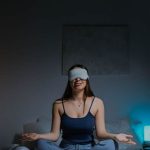How Practicing Yoga Can Improve Your Sleep Quality: A Complete Guide
In today’s fast-paced world, sleep is often the first thing sacrificed. Many people struggle to achieve restful, uninterrupted sleep due to stress, anxiety, and lifestyle habits. One increasingly popular solution to this problem is yoga. In this article, we explore how yoga can help you sleep more restfully, breaking down its physical, mental, and emotional benefits. We also look at key research, case studies, and actionable guidelines for incorporating yoga into your bedtime routine.
Introduction
Yoga has long been associated with numerous health benefits, ranging from improved flexibility to enhanced mental clarity. But one of the lesser-known advantages of regular yoga practice is its ability to improve sleep quality. In a society where insomnia and poor sleep habits are on the rise, many are turning to yoga to find relief. This guide delves into the science behind yoga’s role in promoting restful sleep, explores practical applications, and offers guidelines for implementation.
Key Concepts
- Parasympathetic Nervous System (PNS): Yoga activates the PNS, which is responsible for rest and digestion. This contrasts with the fight-or-flight response of the sympathetic nervous system.
- Circadian Rhythm: A natural cycle that regulates sleep and wakefulness. Yoga helps in regulating the circadian rhythm, especially when practiced consistently.
- Pranayama: This refers to breathing exercises in yoga. Pranayama can help lower heart rate and calm the mind, essential for better sleep.
- Mind-Body Connection: Yoga fosters a deep connection between the mind and body, allowing individuals to become more in tune with their physiological and emotional states, which is critical for improving sleep.
- Yoga Nidra: A specific form of yoga known as ‘yogic sleep’ helps in inducing a deeply relaxed state similar to sleep.
Historical Context
Yoga has been practiced for over 5,000 years, originating in ancient India. Initially conceived as a spiritual and philosophical practice, it has evolved into various forms, including those focused on mental and physical health. In ancient texts such as the Upanishads and the Bhagavad Gita, yoga is described as a path to achieving inner peace and self-realization, elements that inherently support restful sleep.
In the 20th century, yoga gained popularity in the West, primarily for its physical benefits. However, as more research emerged, its influence on mental well-being and sleep became evident. Modern adaptations of yoga, such as Restorative Yoga and Yin Yoga, have been specifically designed to calm the nervous system, making them ideal for addressing sleep disorders.
Current State Analysis
Today, insomnia and poor sleep quality are prevalent issues, with an estimated 30% of the global population affected. Many individuals rely on medications, which often come with side effects. However, studies show that yoga can serve as a natural, non-invasive alternative. According to research from Harvard Medical School, individuals who practiced yoga daily reported significant improvements in sleep efficiency, total sleep time, and the amount of deep sleep achieved.
Yoga’s popularity continues to grow, with specialized sleep-centric classes now available online and in studios. Health professionals are increasingly recommending yoga as a complementary treatment for sleep-related issues. As awareness of mental health and wellness grows, yoga’s role in supporting sleep hygiene is expected to expand.
Practical Applications
Yoga can be easily integrated into a daily routine to improve sleep. The following yoga practices are particularly effective:
- Restorative Yoga: This involves passive poses that are held for several minutes, promoting deep relaxation. Poses such as Supta Baddha Konasana (Reclining Bound Angle Pose) and Savasana (Corpse Pose) are known to induce a calm state conducive to sleep.
- Pranayama: Breathing exercises like Nadi Shodhana (alternate nostril breathing) and Ujjayi (victorious breath) can reduce stress and prepare the body for rest.
- Yoga Nidra: Often referred to as “yogic sleep,” this guided meditation technique helps transition the body into a sleep-like state, which can be beneficial for those struggling with insomnia.
- Evening Routine: Gentle yoga postures combined with deep breathing exercises before bed can help signal to your body that it’s time to wind down.
Case Studies
Various studies highlight the effectiveness of yoga in improving sleep quality:
| Study | Participants | Yoga Style | Key Findings |
|---|---|---|---|
| Harvard Medical School Study (2010) | 20 adults with chronic insomnia | Restorative Yoga | Reduced sleep onset time by 45 minutes on average. |
| Journal of Ayurveda and Integrative Medicine (2017) | 60 participants with sleep disorders | Yoga Nidra | Improved total sleep time and sleep efficiency. |
| National Sleep Foundation Survey (2019) | 100 yoga practitioners | Various styles | 90% reported improved sleep quality. |
Stakeholder Analysis
Several key groups benefit from integrating yoga into sleep routines:
- Individuals with Sleep Disorders: Yoga offers a natural, side-effect-free method for managing insomnia and other sleep issues.
- Healthcare Providers: Doctors and mental health professionals can use yoga as a complementary treatment to help patients improve their sleep quality without medication.
- Employers: Poor sleep affects workplace productivity. By promoting yoga-based sleep improvement programs, employers can enhance employee well-being and efficiency.
Implementation Guidelines
To successfully integrate yoga into your sleep routine, follow these steps:
- Start with Breathing Exercises: Begin with 5-10 minutes of pranayama to calm the nervous system.
- Choose Gentle Poses: Focus on restorative poses that encourage relaxation. Avoid dynamic or energizing sequences before bed.
- Consistency is Key: Practice at the same time each day to help regulate your circadian rhythm.
- Optimize Your Environment: Create a peaceful, distraction-free space to practice yoga before bedtime.
- Integrate Yoga Nidra: Set aside 10-20 minutes for Yoga Nidra, particularly if you struggle with falling asleep.
Ethical Considerations
When recommending yoga for sleep, it is important to recognize certain ethical considerations:
- Inclusion: Yoga should be accessible to people of all physical abilities. Modified poses and props can help make yoga more inclusive.
- Respect for Cultural Origins: It’s essential to honor the cultural roots of yoga, ensuring that practices are presented respectfully.
- Mindful Teaching: Yoga instructors should avoid pushing students beyond their physical limits, particularly in a practice designed to promote sleep.
Limitations and Future Research
While yoga has proven benefits for sleep, there are still limitations that must be addressed:
- Personal Variation: The effectiveness of yoga for sleep can vary greatly from person to person. More research is needed to determine the specific mechanisms that influence these differences.
- Long-term Effects: While short-term improvements in sleep have been well documented, long-term studies are limited. Future research should focus on sustained benefits over time.
- Integration with Other Treatments: Yoga may not be a standalone solution for severe sleep disorders. Research into its combined effects with cognitive-behavioral therapy (CBT) and other interventions is necessary.
Expert Commentary
In conclusion, experts agree that yoga is a highly effective tool for improving sleep quality. Dr. Sarah Ballantyne, a leading sleep researcher, notes, “Yoga, particularly restorative and mindful practices, works on both the physiological and psychological levels, helping to calm the mind and prepare the body for restful sleep.” Practitioners emphasize the importance of consistency and incorporating yoga into a holistic approach to health and well-being. The growing body of research supports the notion that, for many, yoga is a safe and natural way to overcome sleep challenges, offering a path to a more peaceful and restorative night’s sleep.








